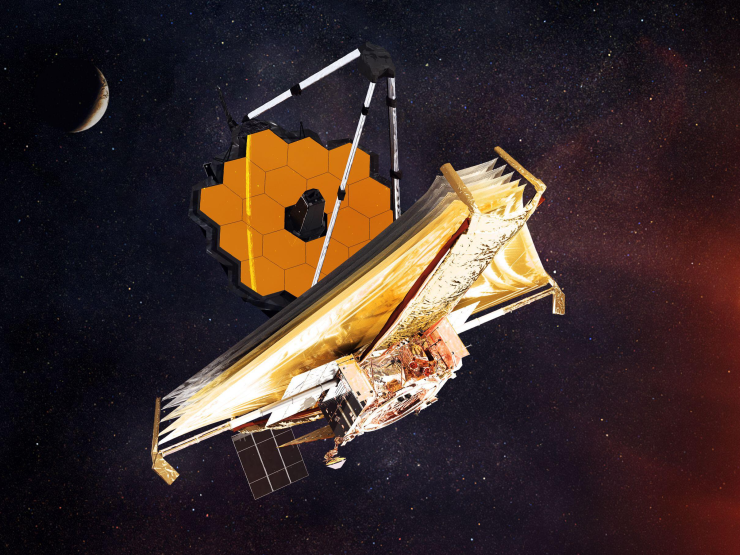As astronomers say they've detected chemical compounds on a distant planet that are said to be the “biggest hint of alien life discovered so far", Christian thinkers have been sharing their views on NASA's recent discovery, with Premier Christian News.
NASA’s James Webb Space Telescope (JWST) has discovered evidence of carbon-based molecules in the atmosphere of the extra-solar planet known as K2–18 b, leading scientists to believe it could indicate the existence of living organisms. The planet, thought to be mostly water, is around twice the size of Earth and orbits in the habitable zone of a central star, like our sun but located 120 light-years from our solar system. The new results have detected dimethyl sulfide (DMS), which on Earth can only be produced as a by-product of life.
Dr Nick Spencer, author of 'Magisteria: the entangled histories of Science and Religion', and a senior Fellow at the thinktank, Theos, tells Premier NASA's evidence isn't conclusive quite yet: "Of course, people are joining the dots straightaway and saying they've discovered life. They haven't quite done that. But it's an interesting indication.
But the data sent back from the 'final frontier' has got people thinking. Josh Hinton, Head of communications for the London Institute for Contemporary Christianity (LICC) tells Premier the discovery of sentient life would be a “huge moment for the church and our understanding of reality.”
“If we were to discover alien beings with the ability to know themselves and God, we might see our theology being tested... Are they aware of God? Has he revealed the same characteristics of love, mercy, and justice to them?
"Clearly these are unknowable, hypothetical questions at present – but they hint at the kind of issue that could arise should sentient aliens get in contact,” Hinton adds.
Dr Spencer says the chance of there being life in outer spaces is higher than not, but he doesn't think such a discovery would challenge the core of the gospel: "The statistics are definitely on the side of life, somewhere in the universe, beyond doubt. Just the sheer number of 100 billion stars in our galaxy, 100 billion galaxies, many, many stars seem to have planets orbiting around them, and the fact that life evolved on our planet relatively quickly means that it's probably present elsewhere.
But that is in no way a threat to the Christian faith. In fact, on the contrary, I would say it was a significant supporter, particularly to suggest that life - possibly even intelligent life - is woven into the fabric of Creation. That I think is an extremely exciting prospect."
The prospect of life on other planets should expand our joy and awe of God and His power, according to Hinton. Like Nick Spencer, he suggests the idea "that there could be more to discover, more of his handiwork to know, is surely an exciting prospect.”
Dr Spencer encourages Christians to engage with science, and not to feel overwhelmed by the probability of life in outer space: "It's crucial that Christians don't get defensive or protective. There's a narrative out there that says, Christianity is based on human uniqueness if there are other intelligent life forms and the universe then that undermines human uniqueness... but that really doesn't hold together. There's lots of holes in that particular argument."
He says it doesn't need to pose a risk to Christian beliefs: "I think that Christians and all people of religious faith should first start paying serious and respectful attention to the science and secondly, not feel threatened by it."





